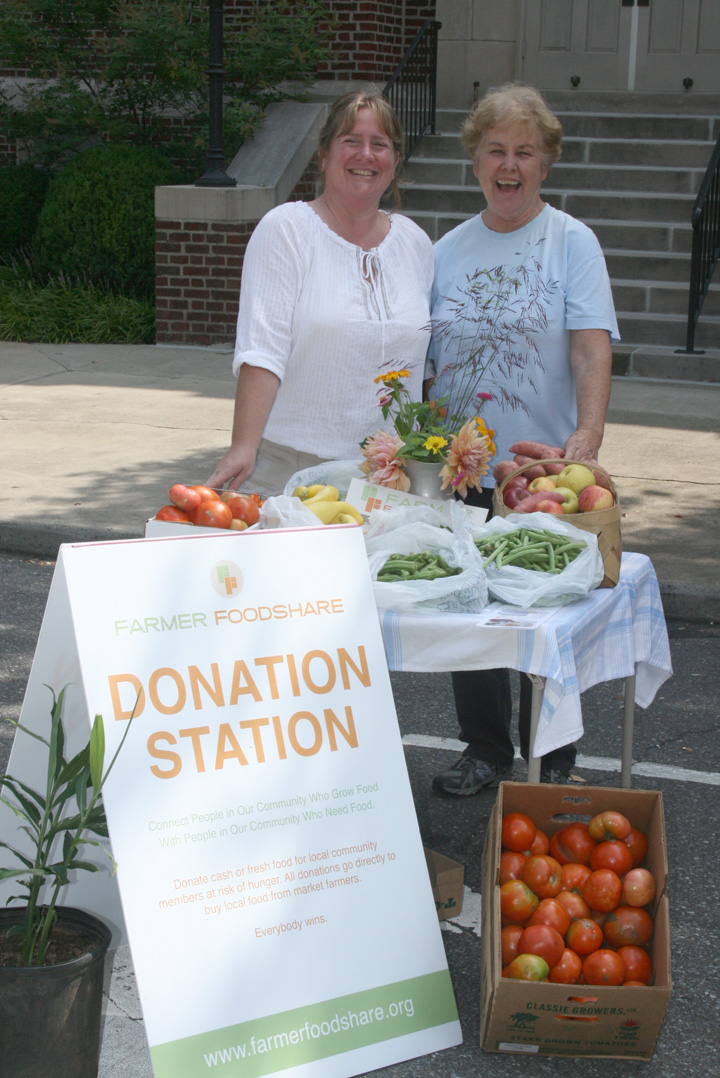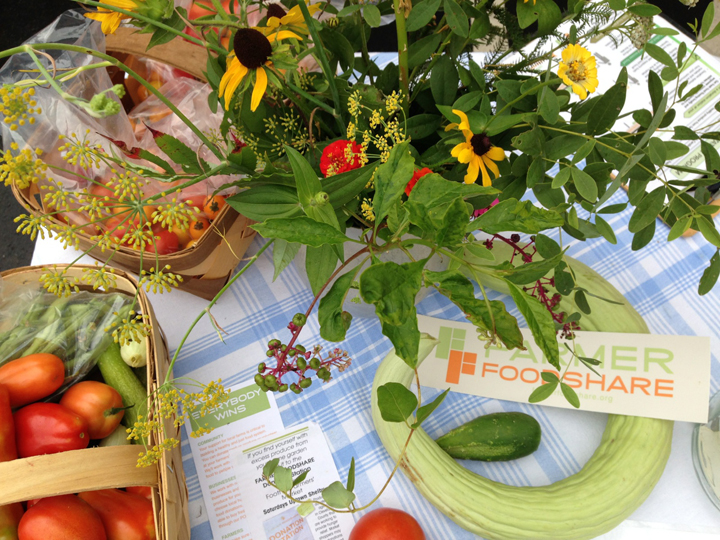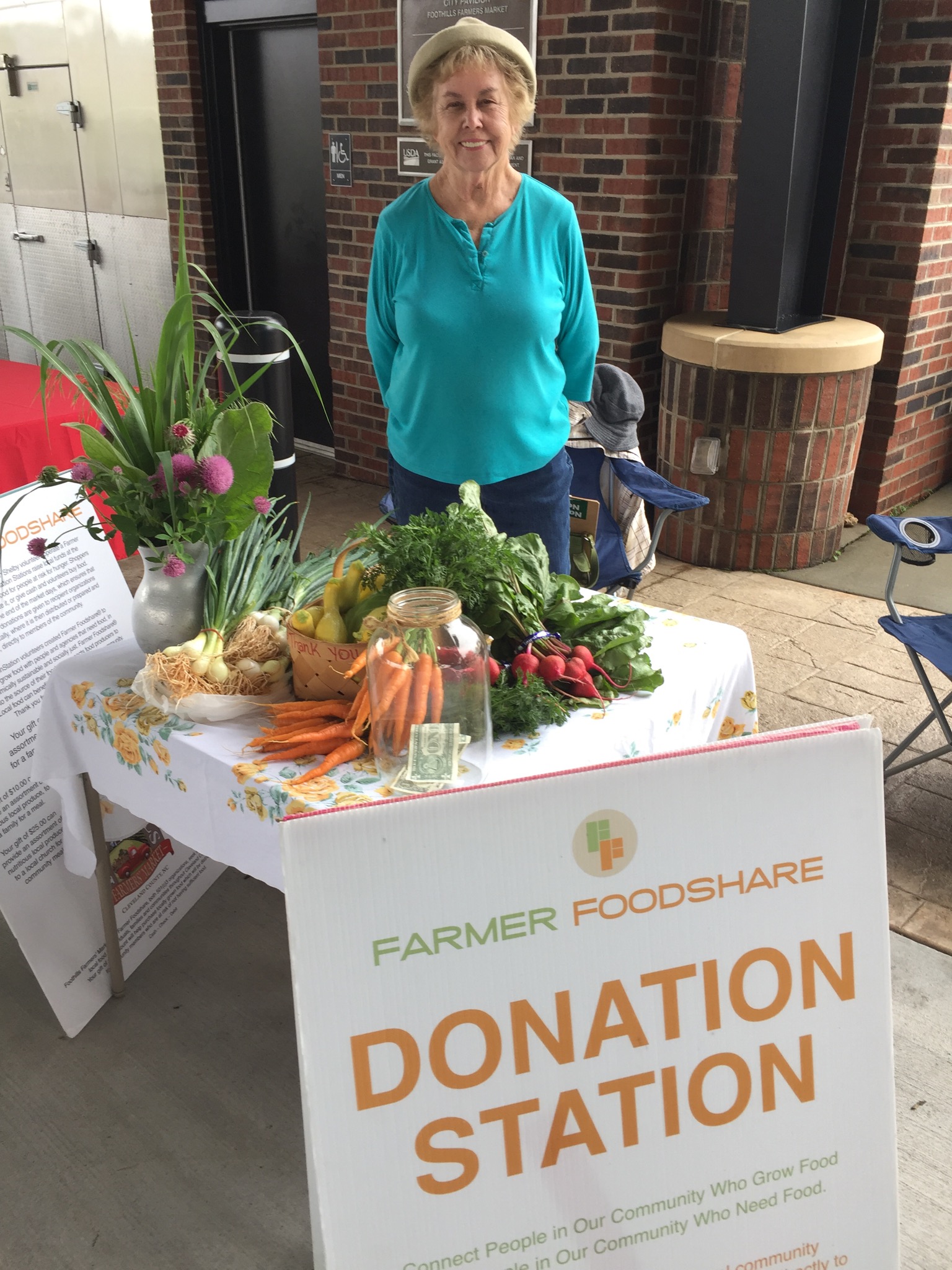It’s the perfect week to support your local farmers!
by Marin Lissy
This time of year, tons of delicious produce is in season: tomatoes, cucumbers, watermelon, and peppers, to name a few. But farmers markets are more than just a place to purchase food. They serve several roles in our communities: increasing access to fresh, nutritious produce; encouraging sustainable farming; and providing an important outlet for producer-to-consumer sales.
Farmer Foodshare works to remove the barriers that farmers — especially small and mid-scale farmers — face in trying to make a healthy living. According to the Farmers Market Coalition, “Farmers and ranchers receive only 15 cents of every food dollar that consumers spend at traditional food outlets.” In order to have its produce sold at traditional food outlet, small farms must produce at a capacity that does not justly correlate with the amount of money they receive.
At a farmers market, farmers receive 100% of your food dollar. Plus, you can meet and interact with the person who grew the food you are purchasing. It’s a win-win!
Our farming communities are also strengthened by farmers markets. In 2015 survey, 81% of farmers selling at a market said they incorporated sustainable agriculture in their farming, between reducing tillage, and using cover crops and natural pesticides. The income that farmers receive from markets helps them preserve their rural livelihood and maintain farmland for farming.
Farmers markets are an incredible resource right here at home, and they help lift the communities that they’re located in. Look for opportunities to learn more about your food and support your local growers this National Farmers Market Week!
Want to get involved?
Visit your local farmers market and chat with the farmers while you shop. They love to talk about the food they’ve grown. Or you can donate or volunteer at a Donation Station near you! Your participation helps increase farmer sales and push more fresh produce into your community.
Read more:
Marin’s experience as a teen volunteer
Longtime Donation Station volunteer Tom Melton on why farmers markets rock












